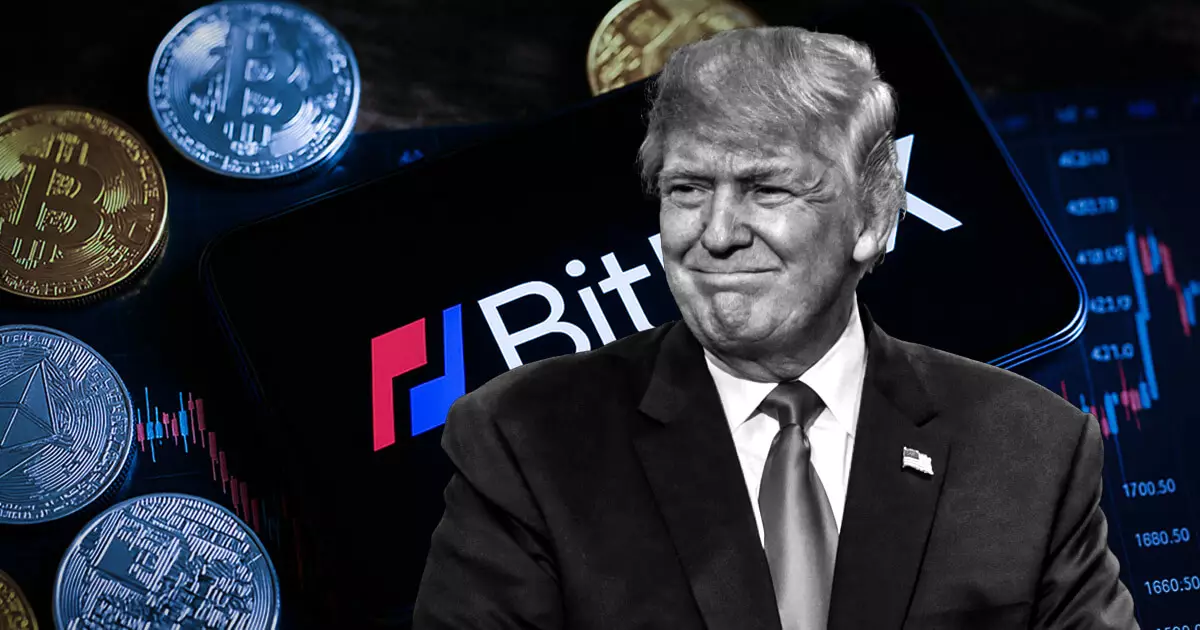In a move that left many political analysts scratching their heads, former President Donald Trump granted full pardons to the co-founders of the cryptocurrency exchange BitMEX on March 27. This decision cleared the names of Arthur Hayes, Benjamin Delo, and Samuel Reed, individuals who had previously admitted to breaching anti-money laundering laws and faced substantial penalties. While some may regard this as an act of benevolence, others argue that it embodies a troubling precedent where the consequences of wrongdoing can be easily erased, particularly in the rapidly evolving world of cryptocurrency.
With the pardons less than three months after BitMEX itself settled for $100 million over compliance failures, one can’t help but sense a deeply entwined narrative: the intersection of politics and a burgeoning industry often left in gray areas of regulation. The trio’s initial admission of guilt, followed by hefty fines and probation sentences, raises the question of accountability when rules are bent, or outright broken. Is a pardon reserved for those who have been unjustly condemned, or does it acquit individuals of legitimate infractions in the name of market innovation?
Reckoning with Regulatory Reality
The regulatory framework surrounding cryptocurrencies remains fraught with ambiguity, but that does not imply that evasion should be tolerated. The BitMEX founders built a platform recognized for its aggressive trading products sans sufficient identity checks and protections against illicit activity. Indeed, allowing users to trade with merely an email registration constitutes a gross form of negligence under the Bank Secrecy Act. This begs further inquiry: should the novelty of digital currencies come at the cost of regulatory compliance?
Delo’s assertion that they were persecuted under an “outdated law” is a convoluted argument that doesn’t hold water. The Bank Secrecy Act exists to prolong financial integrity and mitigate criminal activities, especially in the digital age. If we somehow validate negligence by arguing against outdated regulations, we are left to wonder how many infractions we will burden future generations with in the name of capitalist exploration.
Public sentiment, especially among the center-right audience, appears conflicted. Many proponents praise innovation within the cryptocurrency realm but demand ethical conduct and respect for existing regulations. It’s paramount that while we push for financial innovation, we do not trample over the protections established to keep our economic systems in check. The BitMEX case is not merely a battle over legality but a battle over the very soul of entrepreneurship in the digital economy.
Pardons vs. Responsibility
The surge of excitement surrounding cryptocurrency in recent years can oftentimes overshadow the ethical responsibility incumbent upon those who lead such innovations. In a world where financial misconduct can lead to the loss of billions, the accommodating nature of a political pardon sends a discouraging signal: that right and wrong are negotiable within the confines of privilege and power. The apparent ease with which Trump dispensed such pardons reinforces the corruptive potential within our fabric of governance.
What makes the situation particularly alarming is the message sent to emerging entrepreneurs. It suggests that accountability can be circumvented through the right connections or political affiliations. This is a distillation of moral hazard at its finest; if founders of one of the industry’s most prominent exchanges can evade repercussions, how can we expect future innovators to adhere to ethical standards? The precedent set by these pardons could embolden other industry leaders to flout regulations, believing that political goodwill is available when stakes are higher.
The implications of this departure from accountability ripple far beyond a singular incident—they challenge the broader legitimacy of the cryptocurrency market. As regulators scramble to catch up with the rapid pace of technological change, the thinking should not be, “What laws can we skirt?” instead it should be, “How can we enhance trust while promoting innovation?”
When forgiving the BitMEX leaders, we must ask whether it serves the interests of justice or merely perpetuates the disillusionment of a society grappling with the ethical boundaries of modern enterprise. As political figures forge relationships with burgeoning industries, let us hope they keep in mind that responsibility must be part of the equation, lest we allow forgiveness to become synonymous with impunity.
















Leave a Reply